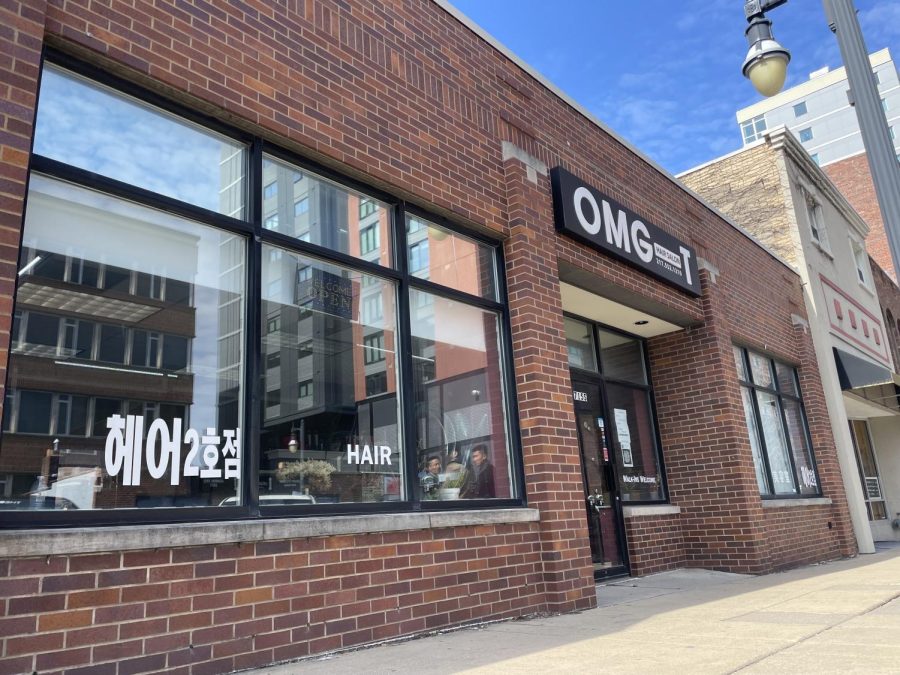Opinion | Barbers are essential to a functional society
OMG Salon, located at 715 South Sixth Street
Mar 7, 2023
The next time you get a haircut, take a good look in the mirror at the person standing behind you with the shears in their hands. They are essential figures in society, keeping public discourse alive since 3500 B.C.
The barber trade has origins dating back to ancient Egypt, where barbers would often double as priests, saving the scalp and soul in a single visit. In the Middle Ages, barbers did the work of a modern-day surgeon, performing crude operations like bloodletting, the purposeful cutting of patients’ veins to empty out illness.
In fact, the barber pole itself represents the long-since-outlawed practice of bloodletting, with the red, white and blue representing the blood, bandages and veins, respectively. In short, barbers have always occupied a special role in society.
Since then, they have facilitated the current social atmosphere through their own unique version of a public forum.
I’m not saying that barbers are some kind of elevated citizens, taking democracy in one hand and a pair of scissors in the other.
Get The Daily Illini in your inbox!
Rather, there is more to the environment of a barbershop than may be apparent.
The talk with the barber or stylist is half the experience — and why many establishments have become their own modern-day versions of a Boston coffee shop or Paris salon.
They are spaces for free, unadulterated discourse, varying from gossip to politics — which aren’t necessarily mutually exclusive.
For modern Black communities in cities such as Baltimore and Washington D.C., the barbershop is a center of free speech and safe cultural discourse, gathering a steady clientele that comes for the conversation just as much as for the haircut itself.
The value of the open soapbox of the barber’s chair is easy to underestimate, but such establishments in those Black communities draw in notable figures ranging from local politicians to business leaders, showing the clear role they hold in the eyes of the public.
In addition to providing a safe harbor for the public discourse, barber shops act as a facilitator of popular culture. This was seen in the 1940s, when skilled barbers were drafted overseas, leading to the increased popularity of the less-complicated buzz haircut.
Similarly, the Beatlemania of the 1960s meant that any barber who could not replicate the “Fab Four’s” signature mop-tops would likely end up unemployed.
From the ages of Tutankhamun to McCartney, barbers have always occupied a unique space within the current social climate.
The roles of barbers often have reflected the needs of the times in which they’ve operated. This ranged from providing spiritual assistance to the superstitious ancient Egyptians, to keeping the teenagers of the ’60s to now up to date on the latest trends, to creating a necessary safe space for cultural dialogue.
The services provided by the barber should not be undervalued. The COVID-19 pandemic hit the personal service industry hard, closing many barber shops and robbing communities of their own little public forums.
In the wake of the pandemic, it’s necessary to support local businesses and ensure that communities can retain their prime sources of pure communication with their neighbors.
Whether it be a barber shop, a hair salon or stylist, any safe space for open dialogue is priceless, and should be valued and protected. Barber shops and other hairstyling establishments are little havens for democracy.
They are vital in building communities and promoting secure environments for the best of conversations, whether it be about the president, the neighbor’s dogs or anything in between.
Aaron is a freshman in DGS.






